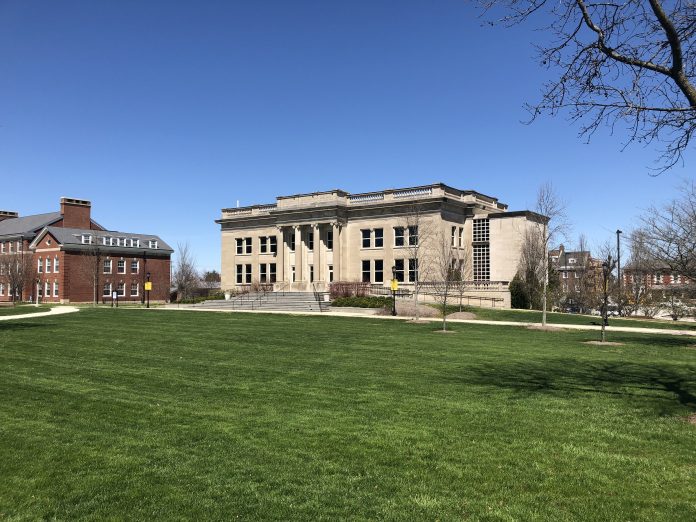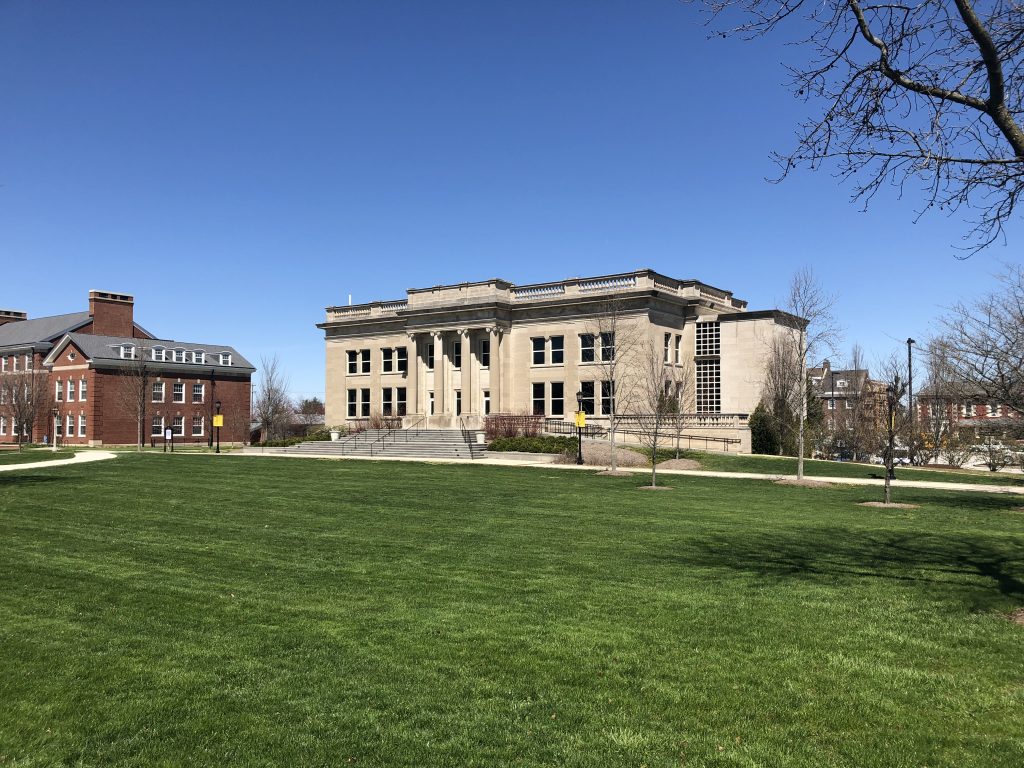

The current summer melt rate at DePauw University is more than double last year’s recorded statistics, as the 48 empty desks at the University indicate.
The term “summer melt” refers to students who pay an enrollment deposit to a college or university, only to retract their commitment in the fall when classes begin.
The most current DePauw admissions statistics show that 48 students who paid the nonrefundable deposit of $400 last spring decided not to attend the University this fall, while last year only 21 students went back on their deposit.
“And we have felt the impact of every single one of those absences,” said Director of Recruitment Rachel Schmidtke.
Some of the 48 students did not contact the University about their decision, thus leaving DePauw in a temporary guessing game, according to Schmidtke.
“If they missed move-in day and didn’t get an extension, that’s a pretty good sign they’re not coming,” she said. “And if they miss the first day of classes, then they’re most definitely not coming. I would say if they don’t make it to orientation and they had not informed anyone in advance, then they’re likely not coming.”
An enrollment deposit, which used to signify a student’s full commitment to a higher education institution, has become less binding according to the summer melt trend.
“There’s a nationwide trend now for students to deposit to multiple schools. I feel like it’s been happening for awhile but it’s really been ramping up in the past five years. There have always been students who have done this, but they’re just getting less and less willing to make that commitment by May 1,” Schmidtke said.
Summer melt, Schmidtke said, is due to “a myriad of reasons,” as seen by a formally-enrolled sophomore’s story.
“My reason has to deal with a lot of different factors, like mental health and past college experiences,” said California native Daisy Hummer, who was one of two transfer students part of the summer melt. “DePauw was way too secluded, and I just didn’t think I would be happy there. But the main reason is that I love L.A., and my goal is to transfer somewhere like the University of Southern California or the University of California, Los Angeles by next fall.”
In addition to mental health reasons, Schmidtke also offered finances, family responsibilities, distance from home, being removed from a waitlist of a preferred school and VISA issues as common reasons why students drop out at the last minute. The bias incidents of last year also may have also had an impact.
“I think it might have affected more of the students who were making that final decision, since it happened right before May 1. We heard there was a handful of students who chose not to come to DePauw for that reason. But if they don’t tell us why, then we don’t know for sure and I don’t want to make that assumption. It may have been in the back of some people’s minds, but we’ll never know if they don’t tell us,” she said.
President Mark McCoy emphasized Schmidtke’s point, saying, “We don’t have any evidence of that (there being a connection between the summer melt rate and the bias incidents of last semester).”
The current issue at hand is fighting against the melt rate, said Schmidtke.
“No one is really shocked or surprised by this, but we’re more just thinking on ways to keep students committed once they deposit. All schools deal with summer melt, and it’s just what they are doing to limit it,” she said.
According to Schmidtke, students received a free hat after making their deposit, 3 or 4 classes were scheduled over the summer and several webinars were put together, all in an attempt to keep students committed.
“We were really trying to keep them engaged and keep DePauw at top of mind, knowing that there are many kids still making a decision well after May 1,” Schmidtke said.
“It’s a changing landscape for higher education,” she added. “The student mindset is changing, the political atmosphere, the economy: there’s a lot of things impacting it. It’s just about being nimble and figuring out what students want. And yes, the summer melt number is higher, but we’ve still got a really good freshman class.”
